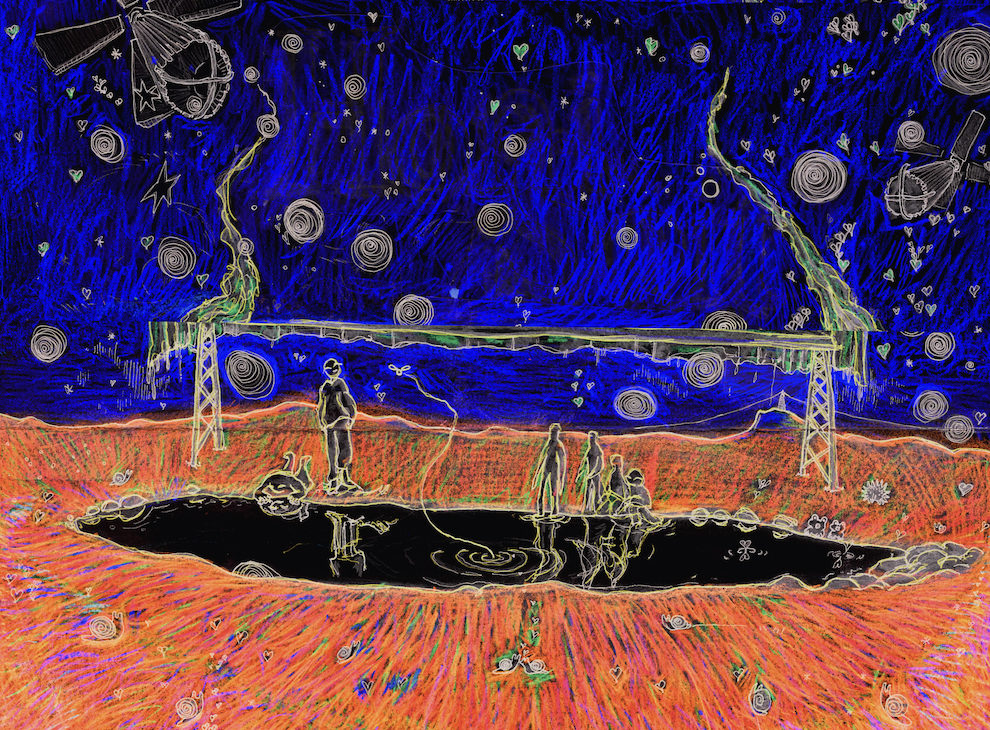I love to think of the world in doubles.
When I peer into a lake, I wonder what sort of world lies in the reflection. When I look into a mirror, I half-expect a figure to appear behind me: a spectre, or just a little hand on my shoulder. I often wonder whether I have a doppelgänger — it’s always possible. I am fascinated by stories of doppelgängers and secret twins —The Parent Trap is probably to blame for this — and I ponder the alternate world that might exist below our feet: Stranger Things and Us are responsible there. I wonder if there is a utopia to our dystopia, a dream to our nightmare, and how we can bring together what is split in half. So, when I asked our reporters to write on these doubles, I gave them an excerpt from Deborah Levy’s August Blue — a novel that I feel best encapsulates this notion of a world in two. Levy writes: “If she was my double and I was hers, was it true that she was knowing, I was unknowing, she was sane, I was crazy, she was wise, I was foolish? The air was electric between us, the way we transmitted our feelings to each other as they flowed through our arms, which were touching.”
For this reason, I refuse to believe that there is not a better self for each of us, and a better world for all of us, out there. The potential that we hold is limitless, and the stories in this edition address that potential for more.
In this edition’s feature article (p. 12), Katarina Kuo considers an alternate world for pornography: one where we rethink the stifling culture that surrounds pornography, and expand our sexual imagination. Kat’s article is preceded by pieces that also envision better worlds: Misbah Ansari and Rajanikhil Malaramuthan (p. 7) condemn the vilification and violence faced by Muslims in India, and they hope for a world that resists the Bharatiya Janata Party; Christopher Finnegan (p. 8) suggests how we can solve the housing crisis through improving accessibility; and Ira Patole (p. 10) criticises the toxic cult of wellness that pervades our world, and deserves no place in it. Later, Mehnaaz Hossain (p. 14) speaks to how bilingual confusion can split a person’s self into two; Simar Batra (p. 15) ponders the dual worlds that those with chronic illness straddle; Anonymous (p. 16) wonders how gender fluidity can layer one’s identity with possibility; and Josh Clay (p. 17) thinks there are secret panthers in the Blue Mountains.
I would like to acknowledge the artists that have made these stories come to life. Thank you to coffee bean for a cover that perfectly represents the magic of double worlds. Thank you also to Juliette Burgess, Christopher Finnegan, Lauren MacColl, Liset Campos Manrique and Margot Roberts for their brilliant pieces.
I hope that you love the stories that lie between these covers.





